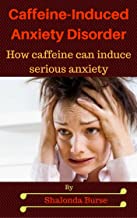Caffeine-Induced Anxiety Disorder
Caffeine-induced anxiety disorder is a subclass of the DSM-5 diagnosis of substance/medication-induced anxiety disorder.
Cluster Number:
Wiki Number: W029
Diagnosis: Caffeine-Induced Anxiety Disorder
US Patients:
World Patients:
Sex Ratio:
Age Onset:
Brain Area: passes the blood-brain barrier; affects hippocampus, cerebral cortex, thalamus
Symptoms: 2+ cups of coffee develops effect
Progression: immediately affects anxiety-but not long-term
Causes:
Medications: anti-anxiety medications
Therapies: None provided.
Youtube Video: Quit Coffee – No headaches
Amazon or Library Book: Caffeine-Induced Anxiety Disorder
Click the book to link or order from Amazon.

